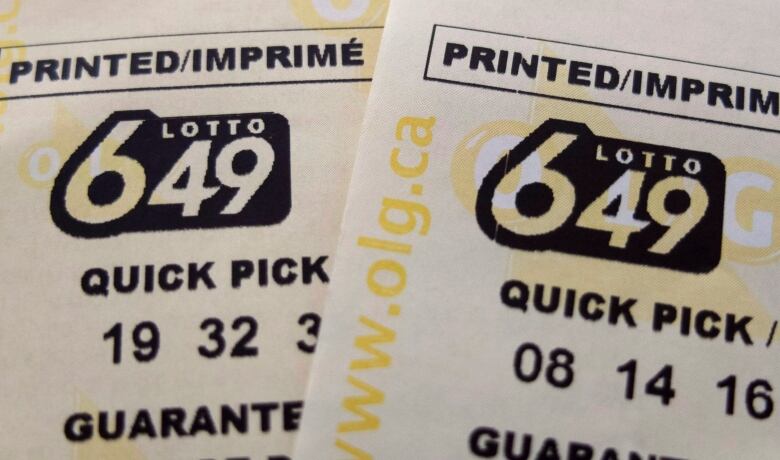Senate 6/49: why a lottery for senators is the best way to go

Sure, you could win millions of dollars by lottery. But what about a Senate seat?
Political scientist Arash Abizadeh says selecting senators by lottery would be more democratic than appointing them - and more democratic than electing them.
"Elections, they treat individuals as equals, they treat us all as political equals, insofar as we all have the same vote. We all have an equal vote. But when it comes to being candidates for office, elections don't treat us as equals because elections inherently favour those people with more resources, who are capable of winning elections."
Abizadeh says early democracy in ancient Greece used a process of random selection, and we see the same concept today in juries and citizens assemblies, like those held in B.C. and Ontario to consider electoral reform.
When it comes to being candidates for office, elections don't treat us as equals because elections inherently favour those people with more resources, who are capable of winning elections.- Arash Abizadeh, McGill University
In fact, it's those citizens assemblies he says we could model in the senate: invitations would be sent to a random selection of Canadians, who would then have the choice to express interest or not. The senators would be selected from those who had expressed interest, taking into account regional, gender, and other kinds of diversity.
Systems could be put in place to make sure the move and job change would be economically feasible for Canadians from all financial backgrounds.
The following is an edited and condensed transcription of Arash Abizadeh's conversation with The 180's Jim Brown.
This is how the ancient Greeks did it, isn't it?
Exactly. So that's what democracy meant for them. Almost all of their political officers were selected randomly, from amongst the citizenry, and one of the great virtues of this, for them, was precisely that it recognized the political equality of all the citizens.
Having random selection, or elections for that matter, or any kind of procedure for selecting political officers, is not going to guarantee that we're going to get the best decisions in any instance. There will always be mistakes, because that's the kind of world we live in.
The question though is, what is the level of quality of the decisions that would be made by an assembly that's randomly selected, as opposed to one that's, say, appointed or elected, and I think that's the real question.

Now, many of the people that are sitting in our Senate now, have experience in politics. You see a lot of former mayors, and provincial politicians, and federal politicians, and staffers in political offices. How would it be better to have Canadians in the Senate with no experience? Wouldn't they actually be less effective than the legislators that we have in there now?
Well, there's trade-offs. In some respects, it is definitely a positive feature of the current appointed Senate, that people do have experience, they bring their expertise to bear on decision making, and that's part of what enables them to acts as a deliberative chamber, as a kind of chamber of sober second though, that can review for mistakes in the legislation.
That's part of it. But another part of what enables them to do this is their relative independence from strategic electoral partisan concerns. So, as opposed to the House of Commons, where, for example, when we hear debates everybody can tell that it's not really conscientious deliberation, that's seeking the force of the better argument, but rather people are saying things in the house of Commons with an eye to the next election: how can the mobilize support? It's very strategic.
Whereas in the Senate, because of it's relative independence from these kind of strategic considerations, the deliberation, many people think, tends to be of a higher quality. So there's two reasons for that. One is, in part, the expertise of the individual, another is relative independence.

A randomly selected chamber would, of course, be relatively independent. People would not be seeking re-election, they would not be under the iron fist of party discipline, because, again, they're not seeking re-election sand so they don't need party resources for the next round, so that's covered.
Then the question is, whether or not their decision making and deliberation would suffer because of the fact that they're amateurs, in politics.
And there's different considerations. On the one hand, it's true, that intelligence, and expertise, and experience, on the part of the individuals who make up an assembly, add to the quality of the deliberations. But actually, social scientists have found that even more important than that, in the quality of the deliberations of a collection assembly, even more important than the individual's intelligence or expertise, is the diversity of perspectives that is found in the collective assembly as a whole. So diversity turns out to be more important for quality decision making than the individual's genius or expertise.
So if you're right, if lotteries are democratic, why don't we just choose our Members of Parliament by lottery too?
Well, because there's trade-offs. Random selection has some virtues, but one of the things about elections that's important is that elections provide a direct link between the voter, and their Members of Parliament. The Member of Parliament is directly concerned with re-election, and so he or she will have a great deal of incentive to keep going back to his or her constituents, to hear what they have to say.
So you see something beautiful in the balance of the two?
Exactly, and that's why my thought here is that if we have a bicameral legislative system, one chamber maintains that link through elections and the accountability mechanism, the other maintains a different kind of link with the population, in virtue of this selection mechanism, that represents all of us, and all of our characteristics.